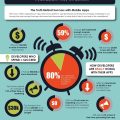
The Future of AI Agents: What You Need to Know
Artificial intelligence (AI) has been making waves in the tech industry for years, transforming the way we live and work. From virtual assistants like Siri and Alexa to self-driving cars, AI is no longer just a buzzword – it’s here to stay. But have you ever stopped to think about what the future of AI agents might hold? In this article, we’ll delve into the exciting world of AI agents, exploring their current state, trends, and predictions for the years to come.
What are AI Agents?
Before we dive into the future of AI agents, let’s define what they are. An AI agent is a software program that can think and act on its own, making decisions based on data and algorithms. These agents can perform tasks autonomously, often with the goal of achieving a specific objective or outcome.
AI agents can be categorized into several types, including:
- Virtual assistants: Chatbots like Siri and Alexa are examples of virtual assistants that use natural language processing (NLP) to understand user queries and respond accordingly.
- Robotics: Industrial robots, service robots, and social robots are all types of AI agents that can perform tasks in various environments.
- Autonomous vehicles: Self-driving cars and drones are examples of AI agents that can navigate and make decisions without human intervention.
Current State of AI Agents
Today, AI agents are already being used in various industries, including:
- Customer service: Many companies use chatbots to handle customer inquiries and provide support.
- Healthcare: AI-powered robots are being used in hospitals to assist with tasks like patient care and medication management.
- Manufacturing: Industrial robots are being used to optimize production processes and improve efficiency.
However, despite their widespread adoption, AI agents still have limitations. For example:
- Lack of common sense: Many AI agents struggle with understanding the nuances of human behavior and decision-making.
- Data quality issues: AI agents require high-quality data to learn and make accurate decisions, but data quality can be a challenge in many industries.
Trends in AI Agents
Several trends are shaping the future of AI agents, including:
- Increased use of NLP: As natural language processing technology improves, we can expect to see more conversational interfaces and chatbots that can understand complex user queries.
- Advances in computer vision: The use of computer vision in AI agents is becoming increasingly important, with applications in areas like object detection, facial recognition, and autonomous vehicles.
- Growing importance of explainability: As AI agents become more pervasive, there is a growing need to understand how they make decisions and provide transparency into their decision-making processes.
Predictions for the Future
So, what can we expect from AI agents in the future? Here are some predictions:
- Increased autonomy: We can expect to see more AI agents that operate independently, making decisions without human intervention.
- Improved collaboration: As AI agents become more sophisticated, they will be able to collaborate with humans and other agents more effectively.
- Greater emphasis on explainability: With the increasing reliance on AI agents, there is a growing need to understand how they make decisions and provide transparency into their decision-making processes.
The Dark Side of AI Agents
While AI agents have the potential to revolutionize many industries, they also raise several concerns, including:
- Job displacement: The increasing use of AI agents could lead to job displacement in areas like customer service and manufacturing.
- Bias and fairness: AI agents can perpetuate biases and inequalities if they are trained on biased data or designed with a particular worldview.
- Security risks: AI agents can be vulnerable to cyber attacks and data breaches, which could have serious consequences for organizations and individuals.
Conclusion
The future of AI agents is exciting and uncertain, with both potential benefits and challenges on the horizon. As AI agents continue to evolve and improve, it’s essential to consider their impact on industries, jobs, and society as a whole. By understanding the current state of AI agents, trends, and predictions for the future, we can better navigate this rapidly changing landscape.
Recommendations for Entrepreneurs
If you’re an entrepreneur looking to get involved in the world of AI agents, here are some recommendations:
- Focus on explainability: As AI agents become more pervasive, there is a growing need to understand how they make decisions and provide transparency into their decision-making processes.
- Invest in NLP and computer vision: These technologies are becoming increasingly important for AI agents, with applications in areas like customer service, healthcare, and autonomous vehicles.
- Consider the social implications: As AI agents become more integrated into our daily lives, it’s essential to consider the potential social implications and take steps to mitigate any negative consequences.
Final Thoughts
The future of AI agents is bright, but it’s also uncertain. As we move forward, it’s essential to be aware of both the opportunities and challenges that these technologies present. By understanding the current state of AI agents, trends, and predictions for the future, we can better navigate this rapidly changing landscape and create a brighter future for all.
Glossary
- Natural language processing (NLP): A subfield of artificial intelligence that deals with the interaction between computers and humans in natural language.
- Computer vision: The ability of computers to interpret and understand visual data from images and videos.
- Explainability: The ability of AI agents to provide transparency into their decision-making processes.
References
- “The Future of Artificial Intelligence” by Nick Bostrom, Oxford University
- “Artificial Intelligence: A Modern Approach” by Stuart Russell and Peter Norvig, Pearson Education
- “The Ethics of Artificial Intelligence” by Andrew Ng, Coursera















